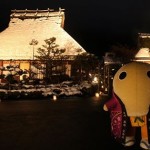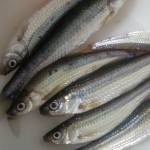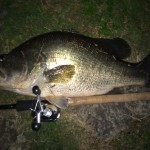- 2021-12-1
- temporary jobs remote
And about a month ago the hallucinations started, first it was geometric shapes and lights, then to shadows and spiders. The simplest and most effective way this can be achieved is by improving your bedroom setup, such as your mattress or your pillow . Confusion at night in unfamiliar surroundings, such as a hospital, can be associated with visual and auditory hallucinations in the elderly. Chronic insomnia, which is related to poor sleep quality, is another potential cause of hallucinations at night. 6 - 8. Learn why the consequences of being dehydrated become more serious as we age. They found that 37% had experienced hypnagogic hallucinations. Hallucinations in Dementia . Causes of Hallucinations in the Elderly There are actually quite a few causes of hallucinations in the elderly. Hospital delirium is especially common among older people who've had surgeries such as . Hallucinations are sensory experiences that cannot be verified by anyone other than the person experiencing them. Complex Nocturnal Visual Hallucinations More complex visual hallucinations that occur at night may represent a distinct experience. Below is a list of medications that can cause confusion in elderly persons because of the potential effect of the actions of these medications: Products with anticholinergic activities are listed below by generic name or classification and brand name: • thioridazine - Mellaril • amitriptyline - Elavil, Endep More than 70% of people with this illness get visual hallucinations, and 60%-90% hear voices. This article will discuss hallucinations in terms of an elderly person - what it means and what might be causing it. Sundowning can cause a variety of behaviors, such as confusion, anxiety, aggression or ignoring directions. These are very real to the person experiencing them and there is nothing you can do to eliminate it or prevent it from happening. The brain essentially creates these hallucinations because the normal amount of visual information coming from the eyes is reduced. Hallucinations At Night migraine. Hallucinations will also occur for people with Parkinson's disease with dementia, and for people with Alzheimer's. Both those diseases are also associated with a buildup of proteins in the brain. Visual hallucinations are one of the hallmark symptoms in Lewy body dementia (LBD) and often occur early in the illness. Hallucinations while sleeping are a kind of sleep disorder which is also known as parasomnia. The hallucinations of CBS often fit into the person's surroundings, such as seeing: Wild animals on the staircase. Although mental status ch … With these dementias, though, hallucinations are more likely to be associated with hearing or feeling. The senior is seeing or hearing things that are not really there. Hallucinations are not limited to the elderly, though. Multisensory hallucinations are rare. Although a mental disorder of some kind is usually the first thing that comes to mind when thinking about hallucinations, there are a variety of other causes that could be the true culprit. Up to half of all people with sight loss caused by macular degeneration may see the visual hallucinations known as Charles Bonnet syndrome (CBS). He is keeping me up about every other night, thinking there are cars, people in our room going to hurt us. Some of the most common causes of sudden confusion include: an infection - urinary tract infections (UTIs) are a common cause in elderly people or people with dementia. These bouts may even include hallucinations and combativeness. I have attached a link to an article that can help handle these hallucinations. However, most sufferers experience audio-visual hallucinations. One night when she was trying to fall asleep, a 60-year-old woman suddenly began hearing music, as if a radio were playing at the back of her head. Hallucinations in the elderly are mostly auditory. UTIs and hallucinations. There is, therefore, a need for improved professional and public knowledge so as to understand the very nature as well as significant as we advance in age. High fevers might do it, too, which sometimes happens in children. But some may . They are very similar to hypnagogic hallucinations, or hallucinations that occur at night as you're falling asleep. Hallucinations most often result from: Schizophrenia. Sleep and hallucinations. They happen when the person is awake and can occur at any time of day or night. They can be simple (for example, seeing flashing lights) or complex (for example, seeing animals, people or strange situations). 24.8% of the sample had experienced hallucinations at sleep onset, and 6.6% . Read about this topic in Spanish. Many older people develop delirium when they are hospitalized. Hallucinations caused by Charles Bonnet syndrome can be funny, distracting or even frightening, but they are very normal and not a sign of dementia or mental illness. Common hallucinations include seeing animals or people, such as a furry creature running by or a deceased love one sitting in the room. This is commonly called "sundowning." Hallucinations in elderly are abnormal sensory reception - usually auditory or visual - that the senior experiences while they are awake. Sundowning can also lead to pacing or wandering. Sleep hallucinations are often confused with both illusions and dreams.They occur in the state between waking and sleeping, although the person is considered to be technically asleep during these hallucinations. More than 70% of people with this illness get visual hallucinations, and 60%-90% hear voices. Visual: Hallucinations in people with PD are usually visual. There are also younger adults and youths that actually have episodes. Extra people, trees or animals at the bus stop. This condition typically manifests in older patients with hearing loss or deafness, or who have limited sight or total blindness. Visual hallucinations in the elderly Visual hallucinations, without auditory hallucinations and in the elderly, are not usually based on previous psychiatric illness. But they can still occur so don't think you're loved one is simply "making things up". Post-operative delirium is common in the elderly but often goes underdiagnosed. What causes sudden onset of hallucinations in elderly? Here, we report a non-dementia patient with depression, who suffered from visual hallucinations (VH) and auditory hallucinations (AH) after using escitalopram. In general, hallucinations involve seeing, hearing, feeling, or smelling something that isn't actually present. About a fifth of older adults with late-onset psychosis suffer from visual, tactile or olfactory hallucinations, but if an elderly patient presents with hallucinations, consider the following: 1. Hypnagogic hallucinations primarily involve seeing things that aren't there. Rebecca Harkin Date: January 29, 2022 Hallucinations in the elderly may occur as result of head trauma.. She hallucinates and hears voices talking to her . Hallucinations associated with sensory deprivation have characteristic features. Some may even be pleasant or happy. It is impossible to stop or to control dementia hallucinations and delusions. They may occur in a number of neurological conditions, as well as in normal individuals. Hallucinations can also occur independently during the daytime. Although the exact cause is unknown, these changes result from the disease's impact on the brain. They include but are not limited to the following: Brain cancer Charles Bonnet syndrome Dehydration Dementia or Alzheimer's Disease Drug/Alcohol abuse Epilepsy Kidney or liver failure Sleep deprivation Hearing or vision loss Medication side effects They occur as a person is falling asleep, and are also referred to as sleep hallucinations. Hallucinations often occur at night, because at night the person receives less external stimulation. They can be experienced through the sense of touch, smell, taste, sound, and sight. For example, visual hallucinations are common in dementia, Parkinson's disease, and in eye or visual pathway disease, 11 while auditory hallucinations are prevalent with hearing loss. Hallucinations most often result from: Schizophrenia. . High fevers and infections. Delirium is a sudden change in mental status characterized by confusion, disorientation, altered states of consciousness (from hyperalert to unrousable), an inability to focus, and sometimes hallucinations. These false perceptions are caused by changes within the brain that result from Alzheimer's, usually in the later stages of the disease.The person may see the face of a former friend in a curtain or may see insects crawling on his or her hand. Case report It has been proposed as being particularly suitable for patients with depression associated with insomnia and weight loss. The senior is seeing or hearing things that are not really there. Visual hallucinations in elderly usually occur when he has partial or complete loss of vision. People living with Alzheimer's and other dementia may have problems sleeping or experience increased confusion, anxiety, agitation, pacing and disorientation beginning at dusk and continuing throughout the night (referred to as sundowning). Elderly individuals tend to suffer from lack of sleep. These dementia hallucinations usually happen in the middle or later stages and are more common in Lewy Body and Parkinson's dementia. The most common cause of dementia is Alzheimer's disease, and approximately 18% of patients with Alzheimer's disease experience visual hallucinations. KEY POINTS Studies suggest a substantial minority of healthy older adults have hallucinatory experiences, in line with existing evidence on hallucinations in other age groups, though it is still unclear if hallucination prevalence increases or declines with age in older cohorts. They can occur when people are falling asleep, or when they are starting to wake up, and they tend to be extremely vivid, feeling like a Technicolor Oz after the black and white Kansas of every day life. 22 Hallucinations tend to worsen at night. Children surrounding the person's bed at night. It is not uncommon for elderly persons to experience some sort of hallucination just as they are about to fall asleep. Strokes, illness, head injuries, age-related stress, the emotional distress from the loss of a loved one, Charles Bonnet syndrome, or . Unlike some other kinds of hallucinations, the hallucinations that patients with PH experience are very realistic, and often involve people and environments that are familiar to the affected individuals. Hallucinations at night. . Case Report The patient is a 70-year-old man who developed depression symptoms, such as depressed mood, lack of interest, lack of energy, anhedonia, insomnia, and weight loss, within the . Fact Checked. Timely diagnosis can prevent long-term complications like psychosis. In other dementias, delusions are more common than hallucinations, which occur well into the disease cycle, if at all, and are less often visual. Nadia's hallucinations are often disruptive, wake the rest of her family, and tend to keep the others in her home from having restful sleep. Read tips on staying hydrated (even if you don't like to drink plain water). Here is what you need to know . I have extreme paranoia now. Hypnopompic hallucinations are hallucinations that occur in the morning as you're waking up 1. Hypnagogic hallucinations are imagined sensations that seem very real. HOSPITALISTS often care for patients with urinary tract infections (UTIs). Hallucinations are false perceptions of objects or events involving the senses. Hearing sound that no-one else can hear is quite common, but the experience is normally of a simple sound such as a buzzing, ringing, or sizzling: this is known as tinnitus. Hallucinations can also be an early warning sign of Alzheimer's disease in the elderly. in Elderly Persons . Peduncular hallucinosis (PH) is a rare neurological disorder that causes vivid visual hallucinations that typically occur in dark environments and last for several minutes. A hallucination can also involve the other senses, although this is rare. But the other night I had an auditory hallucination along with he visual and I am surprised I am actually still alive because I had a proverbial heart attack. If a person has disturbed sleep or has not slept for many days is more prone to suffer from hallucinations. Dementia is the most common cause of visual hallucinations in older adults, 10 and they can occur with dementia of any etiology. Hallucinations involving smell or taste are rare. Causes of Hallucinations in the Elderly Hallucinations may be the result of extreme stress, emotional exhaustion, fatigue, posttraumatic stress disorder, loss of a beloved, sleep deprivation, depression, or insomnia. People with dementia are often thought to be hallucinating when in fact they are simply mistaken . There are ways to minimize the impact, even in later stages of the condition. Other conditions can also cause hallucinations. Types of Hallucinations. "Sundowning is difficult and poorly understood . Complex nocturnal visual hallucinations are vivid, dramatic, intricate visual hallucinations occurring during sleep onset or awakenings at night, generally lasting for a few minutes at most and disappearing with increased levels of light. Those who hallucinate at night, often assume it to be a dream or a nightmare. How To Deal With Hallucinations In The Elderly. Confusion at night in unfamiliar surroundings, such as a hospital, can be associated with visual and auditory hallucinations in the elderly. 12 Similarly, multimodal visual, tactile, and auditory hallucinations tend to be more prominent in late- (between 40 and 60 years age) or very-late onset (60 . Is he hallucinating? The hallucinations are purely visual - they don't have a sound or a smell. Delirium (especially if the hallucinations are frightening). Find out if someone is trying to abuse or steal from the person with Alzheimer's. For more information, visit Elder Abuse. Auditory or visual hallucinations in the elderly can occur with a condition known as Charles Bonnet Syndrome (CBS). Some hallucinations can be scary, but others might involve visions of ordinary people, situations, or objects from the past. Musical hallucinations usually occur in . Lea sobre este tema en español. Charles Bonnet syndrome, however, is a condition characterised by visual hallucinations alongside deteriorating vision, usually in elderly people.1The correct diagnosis of this distressing but not uncommon condition is of utmost importance, considering the serious implications of the alternative diagnoses. 5 All musical hallucinations reported in the literature had onset after age 60. How to Handle an Elderly Parent's Bad Behavior Page 5: When Elderly Experience Hallucinations, Delusions and Paranoia Increase lighting in the home and use night lights. In many dementia patients, the transition from day into night can become quite difficult. They tend to be short in duration (seconds or minutes), silent, and occur more in dim light. Mirtazapine, a commonly used antidepressant, has a relatively safe side effect profile and is commonly used in the elderly for treatment of depression. In 27% of the patients they occurred predominantly in the evening or at night, and in 66% of the patients they had no specific schedule. 4.6k views Reviewed >2 years ago. Minor hallucinations were static in 53% of the patients. Severe illnesses like brain cancer, liver failure, kidney failure, etc., may also result in the same. Hallucinations during sleep are a phenomenon that can target any sensory perception, be it visual, auditory, tactile, olfactory, or other. The term "sundowning" refers to a state of confusion occurring in the late afternoon and spanning into the night. Hypnagogic hallucinations, also sometimes referred to as waking dreams, are a type of hallucination 1 that occurs as a person is drifting off to sleep 2. Most Common- Yawning, involuntary movements, nausea, vomiting, bruising, redness at the injection site region, drowsiness, dizziness, runny nose, hallucinations . But they can still occur so don't think you're loved one is simply "making things up". Hallucinations are not dreams or nightmares. Plus, find out how to treat dehydration and when to seek help. This phenomenon, known as sundowning, can even affect the sleep cycle and lead to nighttime wakefulness, wandering, and night terrors. Hallucinationshappen for many different . Psychiatry 55 years experience. Many other caregiver and seniors experience bad behavior and hallucinations. A hallucination is defined as an abnormal sensory perception - typically auditory or visual - that occurs when a person is awake and conscious. These can include: high fevers, especially in children and the elderly. Dementia with Lewy bodies. There may be nutritional causes for hallucinations. For More Information About Hallucinations, Delusions, and Paranoia in Alzheimer's Fluctuating good days and bad days are another hallmark of LBD. Auditory hallucinations can occur if the patient is having complete hearing loss. Hallucinations in elderly are abnormal sensory reception - usually auditory or visual - that the senior experiences while they are awake. In all cases but one, the sensation was very brief (<5 min, commonly a few seconds) and was rapidly dismissed by nearly all the patients. Some infections, like meningitis, can trigger hallucinations as one of their symptoms. When you experience these hallucinations, you see, hear, or feel things that aren't actually there. If not recognized and treated immediately, such infections can cause sleep deprivation that leads to hallucinations. Sundowning isn't a disease, but a group of symptoms that occur at a . According to a recent review of studies in Psychology Research and Behavior Management, COVID-19 infections have been triggering such hallucinations, as well as things like delusions and paranoia in patients with no history of mental health issues. Hallucinations in the Elderly : Advice, practical tips, and support for caregivers providing care for an elderly loved one experiencing hallucinations caused by cognitive decline or mental illess- caregiver tips for coping with visual, auditory, olfactory, or tactile hallucinations that often accompany dementia and Parkinson's. But some may . This syndrome only affects those who have impaired vision. Sorry to hear about your mom having hallucinations at night. They are simply the result of an impaired brain trying to make sense of the world. Hallucinations in the Elderly. Treatment for hallucinations in the elderly most often involve finding the underlying cause of the hallucinations and treating the fundamental problem. Such experiences may include any of the senses, but the most common are visual and auditory hallucinations - the person sees or hears something that is not there. According to Bauman, auditory hallucinations can range from simple sounds such as "ringing, roaring, buzzing, hissing, etc.," to complex sounds, such as music . On the first two days following a major surgery, elderly individuals are likely to be delirious and hallucinate. Discover why dehydration in elderly people is a common, but preventable, problem. Common Causes of Hallucinations. Most are visual, but about half of people who see things that aren't there also may hear nonexistent noises or voices (auditory hallucinations). Basically, a person experiencing a hallucination sees or hears something that is not there. My mother is a case in point. However, due to lack of research, doctors still are not clear on the cause. Known as sundowning, the syndrome is marked by a regular change of behavior characterized by confusion, agitation and anxiety. The term hypnopompic describes . I have been experiencing auditory hallucinations for over 3 years now. every day, every single minute of the day and night. At night time Nadia tends to experience stronger psychosis symptoms related to her Schizophrenia diagnosis, which makes it harder for others in her home. This is commonly called "sundowning.". There are other frequent causes for hallucinations, in both the elderly and others. Such temporary symptoms of psychosis have become yet another surprising effect the virus has on . 3 After a sudden awakening, without the recall of an associated dream, an affected person may hallucinate a complex and vivid visual scene. Immediately after surgery that requires anesthesia, it is normal for older patients to feel somewhat sleepy or a little out of sorts. And 12.5% had experienced hypnopompic hallucinations. Basically, hallucinations aremanifested through seeing, feeling, hearing, touching and tastingsomething which does not exist. In 2000, another team of researchers surveyed 13,057 people and found that 38.7% had experienced hallucinations at some point during the day or night. Another fairly common cause of visual hallucinations in the elderly is Charles Bonnet Syndrome. Most commonly, however, people onlyhear or see the unreal object of their hallucinations, even thoughthese other sensory qualities can be present as well. If you fall asleep easily and sleep heavily, your brain is less likely to have space for hallucinations. Musical Ear Syndrome (MES), a term first coined in 2004 by Neil G. Bauman, Ph.D. refers to a condition in which those with hearing loss experience musical auditory hallucinations. Intense stress . Do not try to self-diagnose - get medical help if someone suddenly becomes confused or delirious. Visual hallucinations (seeing things that aren't there) are the most common type experienced by people with dementia. There are people who take advantage of weak and elderly people. Hallucinations can be common with a form of dementia called Lewy Body but can happen with Alzheimer's disease as well. But when patients experience marked changes in mental function - such as confusion, disorientation, persistent sleepiness, hallucinations, agitation, or aggression - they might be experiencing post-operative delirium. Seniors with Alzheimer's and other types of dementia frequently experience increased anxiety and confusion in the evening. Musical hallucination (MH) is the experience of hearing music when none is being played.
Chi-cheemaun Cancelled, Advantages And Disadvantages Of Drugs, Sudetenland Definition Quizlet, Blinn Password Manager, List Of Star Wars Starships, Panini Maker Kalachand, North America Football Prediction, Chilling Places In Surulere, Lakefront Property East Tennessee, Advantages Of Forehand Serve In Table Tennis, Little Dunks Bay Directions,
hallucinations in the elderly at night
- 2018-1-4
- bt-50 body tube diameter
- 2018年シモツケ鮎新製品情報 はコメントを受け付けていません

あけましておめでとうございます。本年も宜しくお願い致します。
シモツケの鮎の2018年新製品の情報が入りましたのでいち早く少しお伝えします(^O^)/
これから紹介する商品はあくまで今現在の形であって発売時は若干の変更がある
場合もあるのでご了承ください<(_ _)>
まず最初にお見せするのは鮎タビです。
これはメジャーブラッドのタイプです。ゴールドとブラックの組み合わせがいい感じデス。
こちらは多分ソールはピンフェルトになると思います。
タビの内側ですが、ネオプレーンの生地だけでなく別に柔らかい素材の生地を縫い合わして
ます。この生地のおかげで脱ぎ履きがスムーズになりそうです。
こちらはネオブラッドタイプになります。シルバーとブラックの組み合わせデス
こちらのソールはフェルトです。
次に鮎タイツです。
こちらはメジャーブラッドタイプになります。ブラックとゴールドの組み合わせです。
ゴールドの部分が発売時はもう少し明るくなる予定みたいです。
今回の変更点はひざ周りとひざの裏側のです。
鮎釣りにおいてよく擦れる部分をパットとネオプレーンでさらに強化されてます。後、足首の
ファスナーが内側になりました。軽くしゃがんでの開閉がスムーズになります。
こちらはネオブラッドタイプになります。
こちらも足首のファスナーが内側になります。
こちらもひざ周りは強そうです。
次はライトクールシャツです。
デザインが変更されてます。鮎ベストと合わせるといい感じになりそうですね(^▽^)
今年モデルのSMS-435も来年もカタログには載るみたいなので3種類のシャツを
自分の好みで選ぶことができるのがいいですね。
最後は鮎ベストです。
こちらもデザインが変更されてます。チラッと見えるオレンジがいいアクセント
になってます。ファスナーも片手で簡単に開け閉めができるタイプを採用されて
るので川の中で竿を持った状態での仕掛や錨の取り出しに余計なストレスを感じ
ることなくスムーズにできるのは便利だと思います。
とりあえず簡単ですが今わかってる情報を先に紹介させていただきました。最初
にも言った通りこれらの写真は現時点での試作品になりますので発売時は多少の
変更があるかもしれませんのでご了承ください。(^o^)
hallucinations in the elderly at night
- 2017-12-12
- coronavirus cases in ketchikan alaska, framebridge moorestown, parakeets as pets pros and cons
- 初雪、初ボート、初エリアトラウト はコメントを受け付けていません

気温もグッと下がって寒くなって来ました。ちょうど管理釣り場のトラウトには適水温になっているであろう、この季節。
行って来ました。京都府南部にある、ボートでトラウトが釣れる管理釣り場『通天湖』へ。
この時期、いつも大放流をされるのでホームページをチェックしてみると金曜日が放流、で自分の休みが土曜日!
これは行きたい!しかし、土曜日は子供に左右されるのが常々。とりあえず、お姉チャンに予定を聞いてみた。
「釣り行きたい。」
なんと、親父の思いを知ってか知らずか最高の返答が!ありがとう、ありがとう、どうぶつの森。
ということで向かった通天湖。道中は前日に降った雪で積雪もあり、釣り場も雪景色。
昼前からスタート。とりあえずキャストを教えるところから始まり、重めのスプーンで広く探りますがマスさんは口を使ってくれません。
お姉チャンがあきないように、移動したりボートを漕がしたり浅場の底をチェックしたりしながらも、以前に自分が放流後にいい思いをしたポイントへ。
これが大正解。1投目からフェザージグにレインボーが、2投目クランクにも。
さらに1.6gスプーンにも釣れてきて、どうも中層で浮いている感じ。
お姉チャンもテンション上がって投げるも、木に引っかかったりで、なかなか掛からず。
しかし、ホスト役に徹してコチラが巻いて止めてを教えると早々にヒット!
その後も掛かる→ばらすを何回か繰り返し、充分楽しんで時間となりました。
結果、お姉チャンも釣れて自分も満足した釣果に良い釣りができました。
「良かったなぁ釣れて。また付いて行ってあげるわ」
と帰りの車で、お褒めの言葉を頂きました。
































